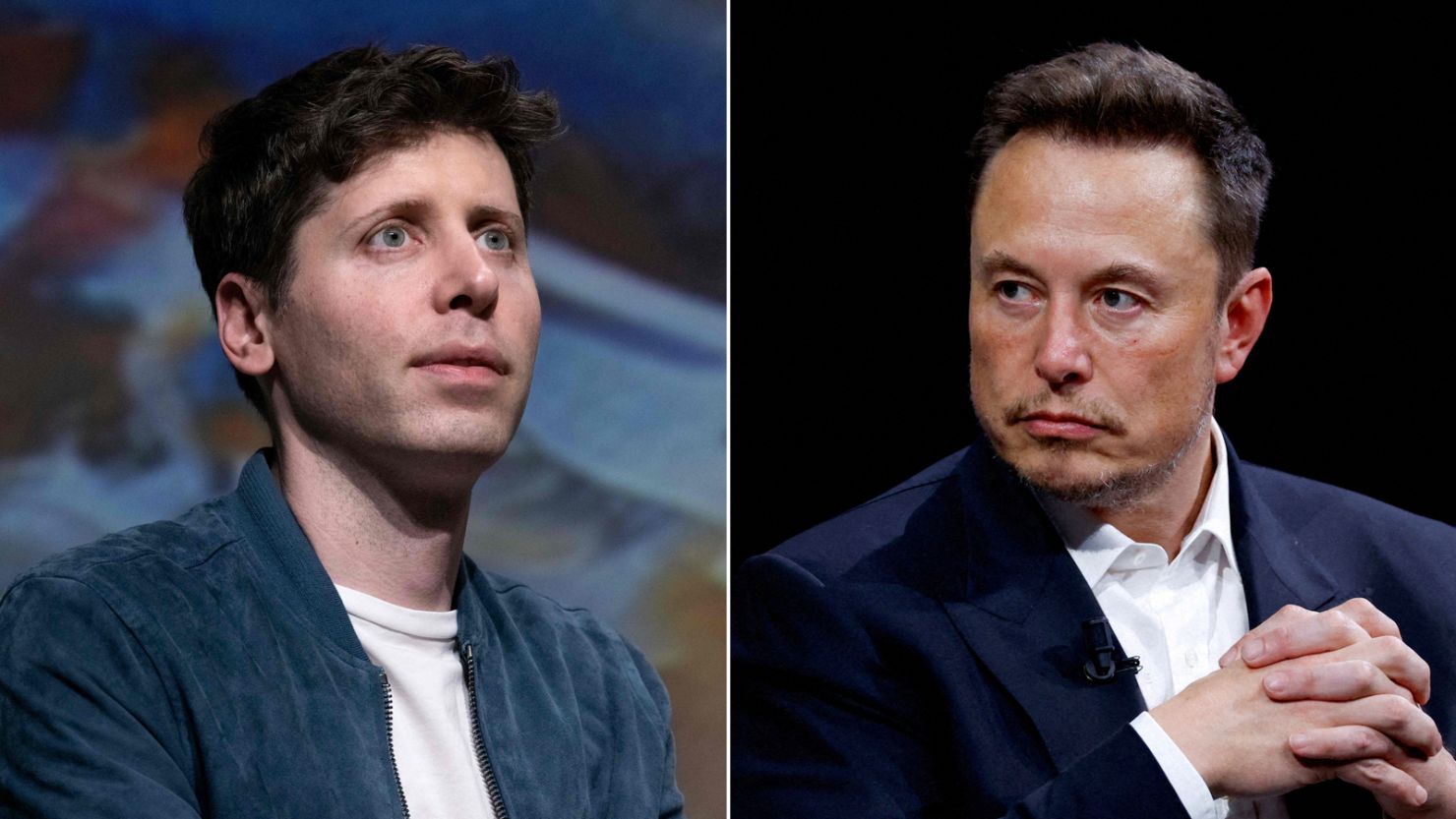The Everything App: Sam Altman And Elon Musk's Competing Visions

Table of Contents
Sam Altman's Vision: OpenAI and the Decentralized Everything App
Sam Altman's vision for an "everything app" is deeply intertwined with OpenAI's focus on artificial intelligence. His approach leans towards a decentralized model, prioritizing user control and data privacy.
The Role of AI
OpenAI's strength lies in its advancements in artificial intelligence. This AI will be pivotal in Altman's "everything app" vision. We can anticipate several key AI-driven features:
- AI-driven recommendations enhancing user experience: Personalized suggestions for products, services, and content, creating a more tailored and engaging experience.
- Decentralized governance models promoting user control and data privacy: Empowering users with greater control over their data and the platform's development through decentralized technologies like blockchain.
- Potential integration with other decentralized platforms and protocols: Seamless interoperability with other decentralized apps and services, fostering a more open and interconnected ecosystem.
Challenges for Altman's Approach
Building a decentralized "everything app" presents significant challenges:
- Navigating data privacy regulations globally: Compliance with varying international regulations regarding data handling and user privacy will be crucial.
- Maintaining user trust in an AI-driven environment: Transparency and explainability in AI algorithms will be essential to build and maintain user trust.
- The scalability and technical challenges of a decentralized system: Scaling a decentralized platform to handle millions of users while maintaining performance and security is a significant technical hurdle.
Elon Musk's Vision: X and the All-Encompassing Everything App
Elon Musk's approach with X (formerly Twitter) is markedly different. His vision is for a centralized "everything app," aiming to integrate various services under a single, tightly controlled platform.
X as a Centralized Hub
Musk's strategy relies on the existing X user base and infrastructure:
- Integration of payments and other financial services: Expanding X's capabilities to include financial transactions, aiming for a complete financial ecosystem within the app.
- Expansion into e-commerce and other commercial ventures: Integrating shopping and other commercial functions directly within the platform.
- Leveraging existing user base for rapid growth: Utilizing the existing X user base as a springboard for expanding into new markets and services.
Challenges for Musk's Approach
Musk's centralized model faces its own set of hurdles:
- Addressing concerns around data privacy and security: Maintaining user trust and ensuring robust data protection mechanisms are critical.
- Competition from existing super apps in different markets: Facing established competition from other comprehensive apps already dominant in specific regions.
- Maintaining a balance between innovation and user experience: Balancing rapid innovation and feature integration with a seamless and intuitive user experience.
Comparing the Approaches: Decentralized vs. Centralized
| Feature | Sam Altman (OpenAI) - Decentralized | Elon Musk (X) - Centralized |
|---|---|---|
| Governance | Decentralized, user-controlled | Centralized, controlled by X |
| Data Privacy | High emphasis, user-centric | Potential concerns, centralized control |
| Scalability | Potentially more challenging | Potentially easier, established infrastructure |
| Innovation | May be slower, collaborative development | Potentially faster, centralized decision-making |
| Security | Distributed security model, potentially more resilient | Centralized security, single point of failure risk |
Altman's decentralized approach prioritizes user autonomy and data privacy, potentially fostering greater innovation through collaboration. However, it faces significant technical hurdles in scalability and governance. Musk's centralized approach offers faster integration and control, leveraging X's existing user base. However, it raises concerns around data privacy, monopolization, and potential security vulnerabilities. The ultimate success of each approach will depend on their ability to address these challenges and adapt to the ever-evolving digital landscape.
Conclusion
The race to create the definitive "everything app" is underway, with Sam Altman and Elon Musk leading the charge with drastically different strategies. Altman's decentralized, AI-powered ecosystem contrasts sharply with Musk's centralized X. Both models have merits and drawbacks. Understanding these competing visions is crucial for navigating the future of technology. Which "everything app" will ultimately win? The answer remains uncertain, but one thing is clear: this competition is reshaping the digital world. Stay informed about the latest developments in the ongoing battle for the ultimate "everything app"!

Featured Posts
-
 A Look At The Genetics Of Gypsy Rose Blanchards Daughter
May 06, 2025
A Look At The Genetics Of Gypsy Rose Blanchards Daughter
May 06, 2025 -
 Rianna V Rozovom Kruzheve Seksualnaya Fotosessiya
May 06, 2025
Rianna V Rozovom Kruzheve Seksualnaya Fotosessiya
May 06, 2025 -
 Susunan Pemain Timnas U20 Indonesia Vs Yaman Analisis Dan Prediksi
May 06, 2025
Susunan Pemain Timnas U20 Indonesia Vs Yaman Analisis Dan Prediksi
May 06, 2025 -
 Line Of Dutys Martin Compston His Honest Take On A Potential Return
May 06, 2025
Line Of Dutys Martin Compston His Honest Take On A Potential Return
May 06, 2025 -
 Gypsy Rose Life After Lockup Season 2 Free Streaming Methods
May 06, 2025
Gypsy Rose Life After Lockup Season 2 Free Streaming Methods
May 06, 2025
